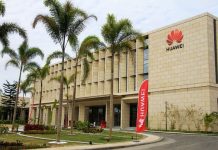
Today(31) there was a forum where discussed financial inclusion for development, which came as an opportunity for policy makers, financial sector specialists, regulators, academics and international institutions to reflect together on strategies aimed at defining clear and more inclusive policies that favor access to finance and technical assistance for small and medium-sized enterprises (SMEs) ).
Organized by the Ministry of Social Action, Family and Women's Promotion (MASFAMU) and the Ministry of Economy and Planning (MEP), through the National Institute of Support for Micro Small and Medium Enterprises (INAPEM), the event had as its theme “Forum on Financial Inclusion for Development -A powerful tool to achieve the Sustainable Development Goals (SDGs)“, provided an opportunity to address various issues, such as the importance of financial education and financial awareness among young people and women and how different actors (financial institutions, public authorities, civil society organizations and consumer associations) work together and develop partnerships to create measures and ways to prevent and combat financial exclusion, paying special attention to the most vulnerable citizens, such as women and young people.
BUT: First edition of the “Emerging Entrepreneurship” forum gives impetus to youth projects
With opening remarks by the Minister for Social Action, Family and Women's Promotion, Faustina Fernandes Inglês de Almeida Alves and the Minister for Economy and Planning, Mário Augusto Caetano João, it was revealed that financial inclusion is a tool to achieve the SDGs because Greater access to financial services is a key factor in achieving them. For example, when people are included in the financial system, they are better equipped to invest in business or education to escape poverty (SDG 1).
The forum also highlighted that SDG 9, which calls for business innovation, can be secured through broader access to credit, and that promoting peace and stability (SDG 16) is easier when people are economically successful.
The financial inclusion of small agricultural producers encourages greater investments during the planting season. The result: higher incomes – and progress towards greater food security (SDG 2). Over the past few years, many developing countries, especially in Africa, have undergone extensive financial reforms.







